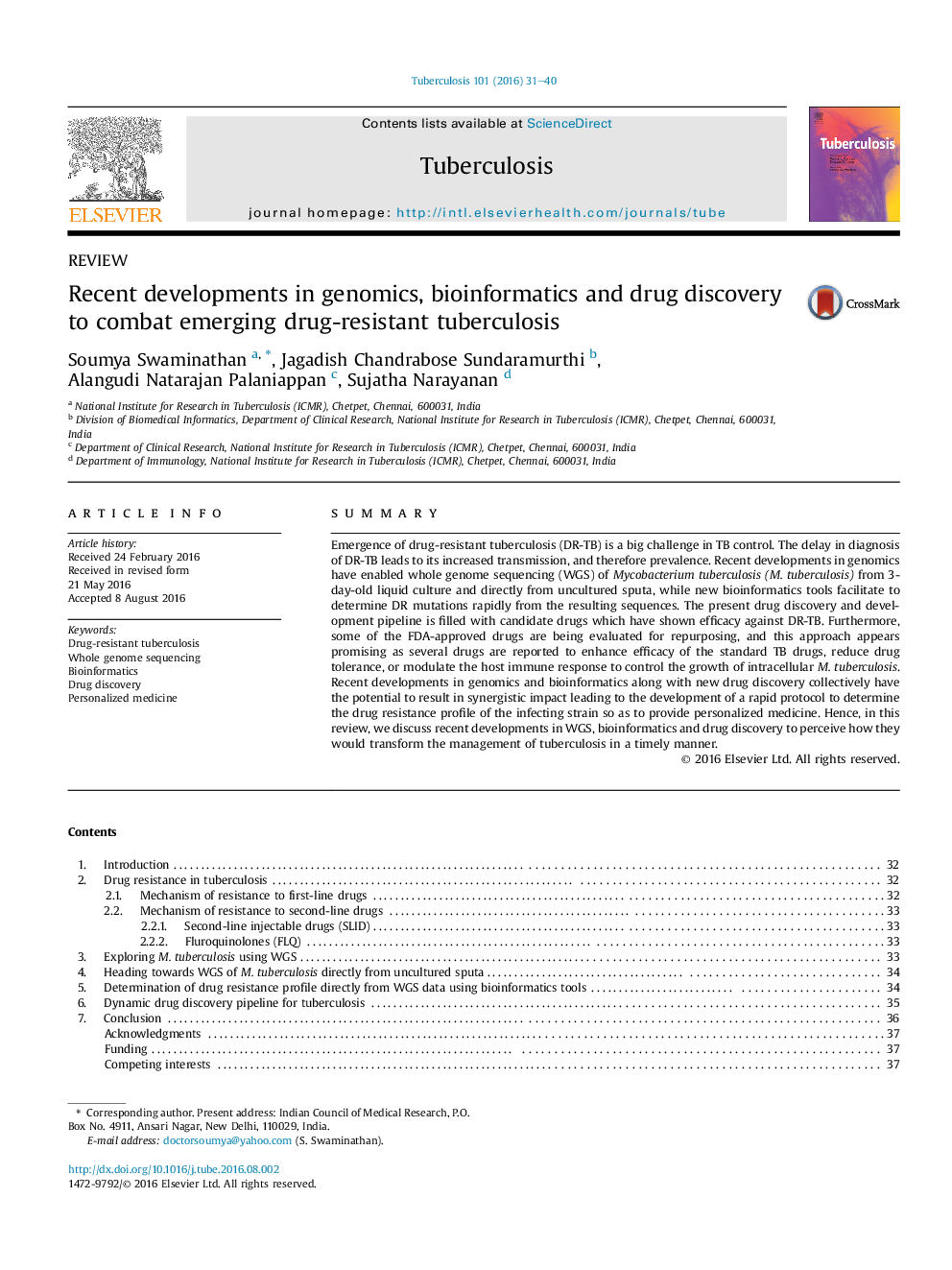| Article ID | Journal | Published Year | Pages | File Type |
|---|---|---|---|---|
| 2401372 | Tuberculosis | 2016 | 10 Pages |
SummaryEmergence of drug-resistant tuberculosis (DR-TB) is a big challenge in TB control. The delay in diagnosis of DR-TB leads to its increased transmission, and therefore prevalence. Recent developments in genomics have enabled whole genome sequencing (WGS) of Mycobacterium tuberculosis (M. tuberculosis) from 3-day-old liquid culture and directly from uncultured sputa, while new bioinformatics tools facilitate to determine DR mutations rapidly from the resulting sequences. The present drug discovery and development pipeline is filled with candidate drugs which have shown efficacy against DR-TB. Furthermore, some of the FDA-approved drugs are being evaluated for repurposing, and this approach appears promising as several drugs are reported to enhance efficacy of the standard TB drugs, reduce drug tolerance, or modulate the host immune response to control the growth of intracellular M. tuberculosis. Recent developments in genomics and bioinformatics along with new drug discovery collectively have the potential to result in synergistic impact leading to the development of a rapid protocol to determine the drug resistance profile of the infecting strain so as to provide personalized medicine. Hence, in this review, we discuss recent developments in WGS, bioinformatics and drug discovery to perceive how they would transform the management of tuberculosis in a timely manner.
